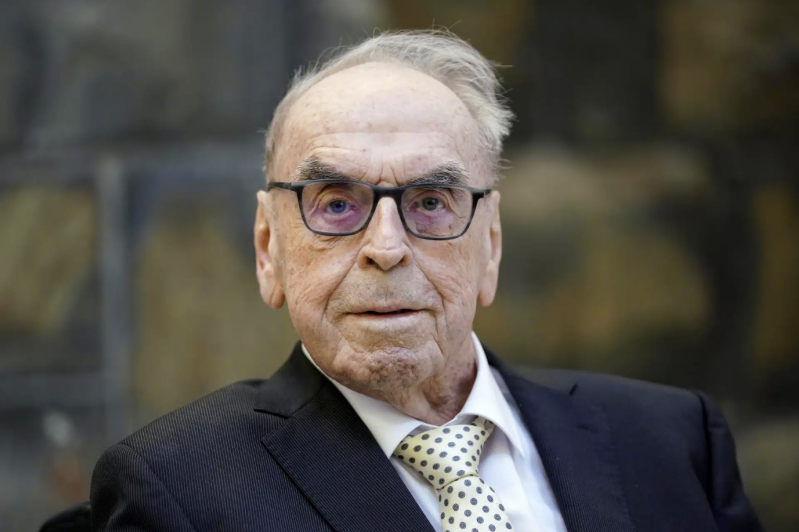
Renowned German Reformed theologian Jürgen Moltmann passed away on June 3 at his home in Tübingen, Germany, at the age of 98. Moltmann, who was a prisoner of war during World War II, found faith through the laments in the Book of Psalms. His theology of hope later reshaped Christian eschatology and had a profound impact on contemporary and Chinese theology. He visited Hong Kong and mainland China for lectures during his lifetime.
Known for Theology of Hope: Reconstructing Eschatology
Moltmann was a pioneer of political theology, developing a church view based on the resurrection and crucifixion of Christ, which led to his perspective on political theology. His numerous works, many translated into Chinese, deeply influenced contemporary and Chinese theological development. His notable works include "Theology of Hope," "The Crucified God," and "The Church in the Power of the Spirit" trilogy, as well as the "Messianic Theology" series. "Theology of Hope" contributed new insights into Christian eschatology, reconstructing it based on hope in the Christian faith, encouraging believers to responsibly use this hope in their thoughts and actions in today's world.
Additionally, in his book "Hope: For a Not Yet Fulfilled World," Moltmann reflected on his life through interviews, commented on current global political and cultural situations, and proposed Christian-based responses. His theology was not an ivory tower product but a response to the world he lived in.
Surviving WWII: Reading Psalms in a Prisoner of War Camp
Moltmann was an emeritus professor of systematic theology at the University of Tübingen, born in Hamburg, northern Germany, in 1926. At 16, he was conscripted into the military and participated in World War II. During the war, he survived several near-death experiences and witnessed the horrors of war. At 19, after Germany's defeat, he became a prisoner of war and saw the atrocities of concentration camps, leading to disillusionment with his homeland.
In a POW camp in Nottingham, England, Moltmann was given a Bible, which he began to read seriously, finding solace in the laments of the Psalms. In 1948, he returned to Germany and studied theology at the University of Göttingen, seeking answers to truth and existence.
At 26, Moltmann earned his doctorate and married Elisabeth Moltmann-Wendel (1926-2016), a renowned feminist theologian. He initially served as a rural church pastor and later taught at several universities, including the University of Göttingen, the University of Bonn, and the University of Tübingen. His book "Theology of Hope" (1964) made him one of the most influential contemporary German Christian theologians, impacting Western and Chinese churches and academia.
Visiting Hong Kong and Mainland China for Lectures and Exchanges
In remembrance of Moltmann, the Chinese Christian Culture Research Institute, which published Chinese translations of his works, posted on Facebook, reminiscing about "the days spent together" and sharing old photos, recalling Moltmann's visits to Hong Kong and mainland China. He visited Chung Chi College at the Chinese University of Hong Kong, engaged in dialogues with Hong Kong theologians, and participated in seminars co-organized by Chung Chi College and the Chinese Christian Culture Research Institute. He also visited Tsinghua University, the Chinese Academy of Social Sciences, and gave lectures.
World Council of Churches Mourns
Moltmann served as a member of the World Council of Churches' Faith and Order Commission (1968-1983). The WCC commemorated him on their website, with Secretary-General (2010-2020) Dr. Olav Fykse Tveit of the Church of Norway expressing deep sadness and gratitude for Moltmann's passing. Tveit praised Moltmann's contributions as a theologian, teacher, and church leader, describing his work as a great and unique gift to the council over the past decades.
"Moltmann, with his unique ability and profound theological reflection, clarified challenges and deep answers, promoting the understanding of the Triune God, God's creation, humanity, and love," Tveit continued. "His memorable encounters and dialogues will always be remembered."






